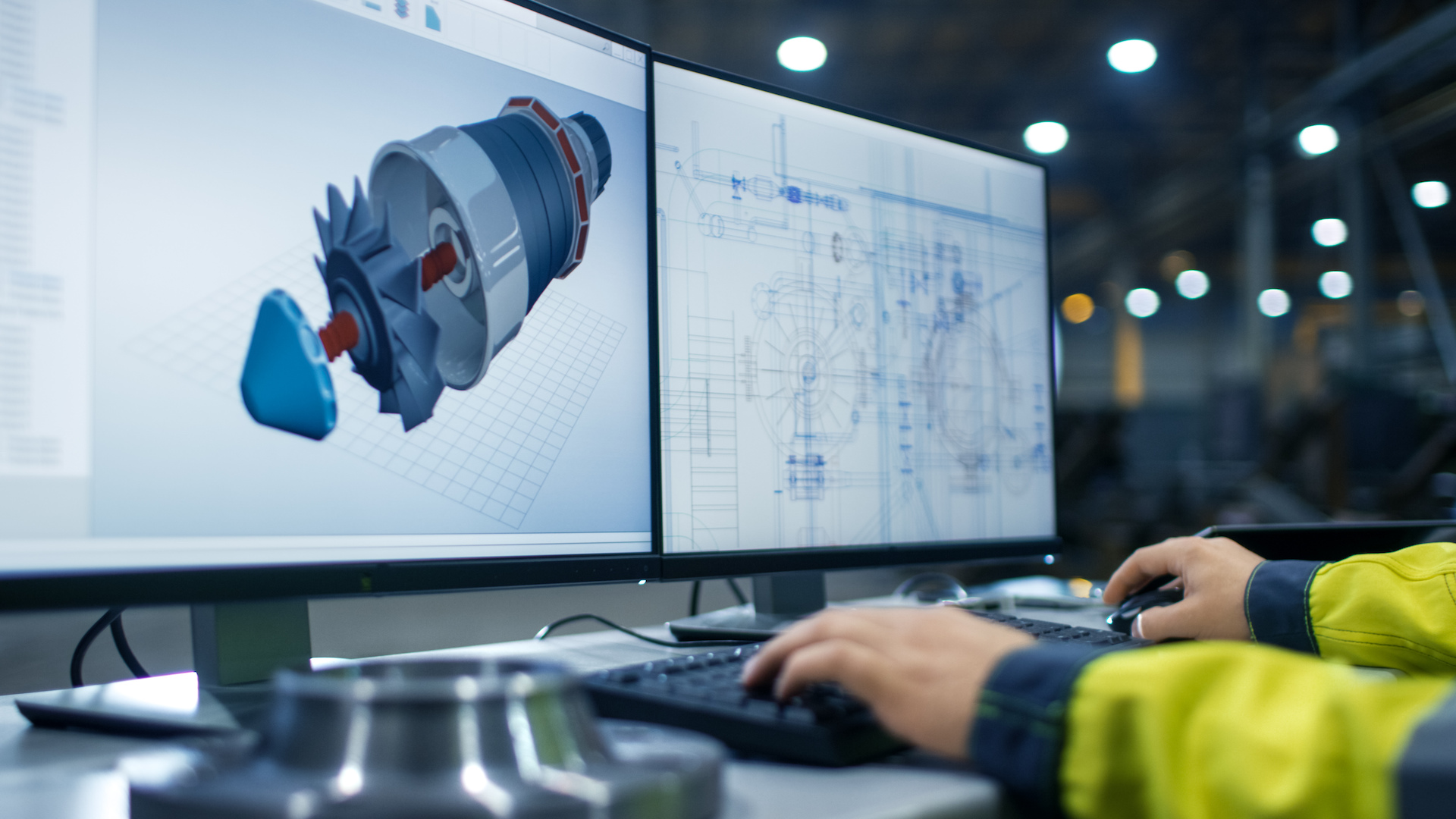.VIRTUAL.
.ENGINEE.
.RING..
CAE (Computer Aided Engineering)
Today the development of a technical or mechanical product can be conducted almost entirely in a digital environment using various computer software tools. These software tools are associated with the term Computer Aided Design or CAE.
In today's industries the virtualization of product development is no longer just a question of "can" but rather a "must", because: CAE saves not only precious time and money. It increases innovation by giving insight to physical phenomena which would otherwise be very difficult and expensive to access using experimental set-ups or in some cases just not possible.
Nuvaya supports companies with CAE conducting thermo-fluid simulations (CFD), structural analysis and simulation (FEM) and virtual 3D design (CAD). Furthermore, rapid prototyping using 3D printing (additive manufacturing), CNC machining or carbon reinforced plastics is also being offered to customers.

CFD:
Thermo-Fluid Simulations
Why CFD?
CFD @ NUVAYA
- Using state-of-the-art CFD software and HPC infrastructure
- Applying in-house multi-parameter, multi-objective optimization tool based on genetic algorithms
- No necessity for customers to own or provide computing infrastructure or software licenses
- High efficiency work structure
APPLICATIONS
- Aerodynamics (compressible and incompressible)
- Internal flows
- Flows on non-newtonian fluids (e.g. blood)
- Conjugate Heat Transfer (thermal coupling between solid body and flow)
- Multi-phase und multi-species flows
Questions? Let's set-up a meeting to discuss how we can join forces to make great products! -> click here
FEM:
Structural Analysis
WHY FEM?
With computer software that utilizes the so-called finite element method (FEM), structural and mechanical behavior of parts, part assemblies or complete products can be evaluated. Mechanical failure or deformation can be simulated as well as stresses within joints and crack propagation in elements.
FEM @ NUVAYA
- Using state-of-the-art FEM software and HPC infrastructure
- Applying in-house multi-parameter, multi-objective optimization tool based on genetic algorithms
- No necessity for customers to own or provide computing infrastructure or software licenses
- High efficiency work structure
APPLICATION
- Proof of Strength according to AD2000, EN13445, ASME, FKM, EN1591-1
- Weld Calculation according to EN13445, IIW, EC 3, ASME, Eurocode
- Bolt Calculation according to EC 3
- Calculation of Pressure Vessels and Piping
- Structural and Topology Optimization
- Operational Fatigue Analysis
- Thermal Stress Analysis
- Crash Simulations
- Dynamic Analysis of Components
- Evaluation of Connecting Elements
Questions? Let's set-up a meeting to discuss how we can join forces to make great products! -> click here
CAD: COMPUTER
AIDED DESIGN
WHY CAD?
Probably the oldest CAE utilization, which was applied on the large scale within the industry, CAD or computer aided design. It encompasses both the 2D and 3D based digital design method using respective CAD software. While early-days software featured rigid/static parts design only, todays state-of-the-art CAD software feature kinematic representations of complex assemblies as well as some basic structural analysis computation using basic FEM.
Like all CAE utilizations, CAD saves valuable time and money in the product development. Furthermore, it provides important information such as weight, moments of inertia and center of gravity for parts or assemblies still before any physical part is manufactured. This gives the engineers a huge freedom within the design and development process.
Rapid Protoyping
WHY RP?
As the name already suggests, rapid prototyping (RP) is about transferring a digitally designed part (CAD) as fast as into the real-world.
In most cases RP is related to utilizing additive manufacturing (AM) or as commonly referred to as 3D printing. There are many different AM manufacturing technologies currently used for prototyping or even production parts. For RP applications powder bed fusion (metals) and material extrusion methods such as FDM (polymers) are commonly used.
CNC machining is also a method of choice when it comes to rapid prototyping. Similarly to 3D printing CNC uses data from the CAD process, which allows for a fast transfer to a physical model. In some cases even manufacturing carbon reinforced plastics (CFRP) can be considered a method of RP. This is the case, if for example the mould used for the lamination process is manufactured using CNC or 3D printing.
In the field of AM or 3D printing based rapid prototyping Nuvaya offers the methods LPBF (metal powder based printing) and WAAM (direct metal deposition by wire arc) for metals and FDM for polymers.
Questions? Let's set-up a meeting to discuss how we can join forces to make great products! -> click here
NUVAYA BECAUSE
Industry Experience
10+ years in international high-tech industry
Speed
Agile structures for fast solutions
Economic Efficiency
Combining work efficiency best-cost solutions
24/7 Customer Support
The Art Of Engineering
The art of engineering rethought. Using state-of-the-art methods for optimizing technical products on the basis of digital tools (CAE) and their application for the bigger picture. Nuvaya is your technology partner in the virtual product development and the challenges of tomorrow.
NUVAYA BECAUSE
Industry Experience
10+ years in international high-tech industry
Speed
Agile structures for fast solutions
Economic Efficiency
Combining work efficiency best-cost solutions